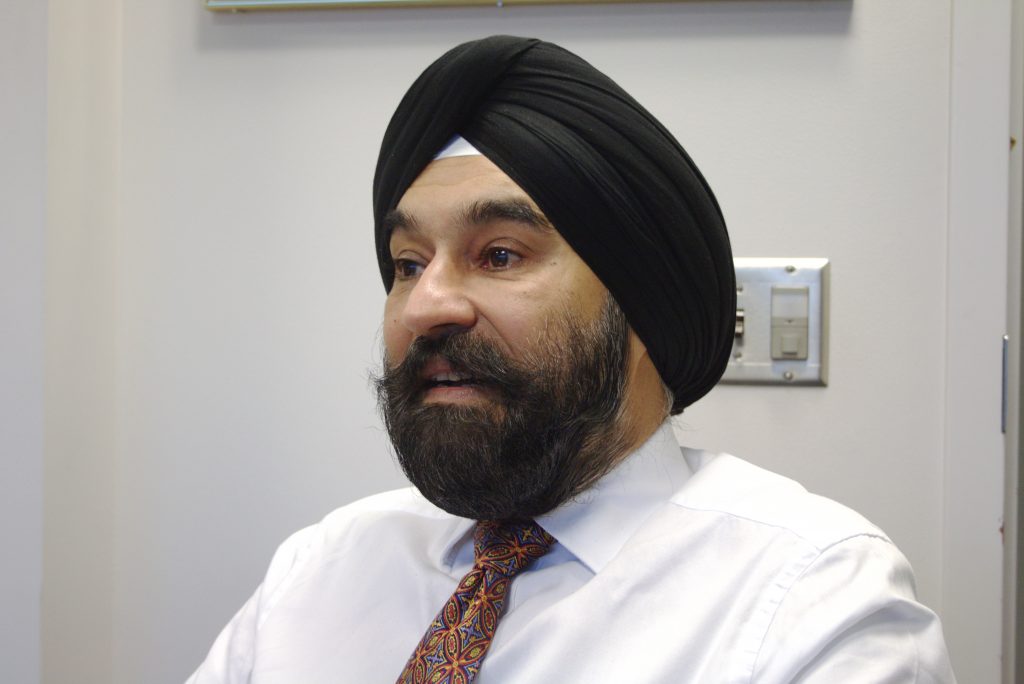
Surinder Kahai teaches e-business in the business administration department of Binghamton University’s School of Management (SOM). Most SOM classes are not set up to provoke students to ask questions about how to form meaningful relationships, or what the meaning of happiness is. Despite this, Kahai strives to connect his technology-based classes to these larger points.
He said he does this by taking a “research-first” view of his relationships with people. He utilizes what he calls “the science of happiness” to inform his lectures and his interactions with his students.
Kahai serves as an adviser and a mentor to many of his students, both in the classroom and individually. He uses lectures about social networks and artificial intelligence to facilitate a deeper conversation about what makes people tick.
According to Kahai, when facing immediate threats, people struggle to deal with the broader, more long-term problems in their lives. Most have a difficult time focusing on enduring problems when there is an obstacle to happiness in their immediate path. Therefore, Kahai said he views happiness as a prerequisite to life’s most meaningful experiences, not as the result of those experiences.
“When a student feels threatened, their focus becomes very narrow,” Kahai said. “They have to focus on the immediate threats and problems surrounding them.”
Students often struggle with their happiness one to two months after graduation, according to Kahai. When his former pupils contact him with these type of concerns, he often sends them a copy of “The How of Happiness” by Sonja Lyubomirsky.
According to the book, people who are happy tend to exhibit a few specific behaviors. They devote a significant amount of time to family and friends, are comfortable expressing gratitude and are optimistic when imagining the future, among other things.
Because of this, he tries to integrate lessons about happiness into his classes and his conversations with his students. He encourages students to tackle immediate obstacles to their happiness as a first priority so that they can develop as professionals and individuals.
“I want to be able to give our students a bag of techniques that they can use to keep themselves in a happier state most of the time in order to avoid letting these immediate threats get to them,” Kahai said.
Photography is where Kahai has found his personal passion. His work is often shared by BU’s social media pages, and a large photo of the sunset over New York City that he took is on display in the lobby of Academic Building A.
“When I do photography, I’m savoring life’s pleasures,” Kahai said.
Students praised Kahai for his ability to effectively teach course material while simultaneously acting as a mentor to his students.
“Professor Kahai is one of the best professors I’ve had at BU,” wrote David Berlin, a junior majoring in business administration, in an email. “I went into his class expecting to learn about technology integration in business but I ended up walking away with much more than the course material.”
Kahai is a previous winner of the SUNY Chancellor’s Award for Excellence in Teaching; SOM Dean Upinder Dhillon said Kahai is a unique asset to the school.
“The thing he brings is his passion,” Dhillon said. “He loves to engage young minds in conversation. When he is speaking, you can tell that he cares about what he teaches.”


